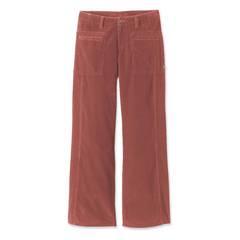Starting off plastic free in 2020
Posted on November 01, 2019 by
Something must be done to reduce plastic use. Experts predict that if we don’t make an effort to reduce how much plastic we use, our oceans will have more plastic than fish in them within the next 30 years. Each day, over seven million plastic pieces and microplastics are released into the world’s oceans. Evidently, it’s time to take action and reduce casual plastic use for good. Environmental awareness has already increased and some changes have already been implemented, for example, the plastic bag fee of 2015 and the recent ban on plastic straws. Small lifestyle changes can make a huge difference in the fight against plastic use.
With the year almost at an end, it’s the ideal time to start thinking about what you can do to reduce your plastic use. Forget fad diets and gym memberships, reducing your plastic use is both rewarding and extremely easy to achieve. Booklet printing specialists Where The Trade Buys explore how you can start off 2020 plastic free:
- Invest in a reusable coffee cups
Takeaway plastic coffee cups are a major source of waste material and plastic takes a shocking 450 years to decompose. With this in mind, it is more pressing than ever to make the switch to reusable items. This might be the reason why many cafes prefer to use customized paper cups for coffee takeaways (get branded coffee cups for your takeaway). This can be an effective way for such businesses to promote their brand and create a lasting impression on their customers as well. KeepCups and Chilly’s Bottles are popular brands that focus on sustainable products.
- Say no to plastic bags and straws
Luckily, these items are becoming less commonplace in the UK today. However, it can still be difficult to avoid them at times. When you pick up a takeaway for example, don’t be afraid to say no to the excess plastic bags your food is wrapped in.
- Only buy unpackaged fruit and veg
Many supermarkets are now making switch to packaging free products. If you have the option, choose to load up brown paper bags with fruit and vegetables rather than choosing pre-package food. Alternatively, you could grow your own veg in a greenhouse or allotment.
- Get your hands on a bamboo toothbrush
Plastic toothbrushes take 400 years to decompose, and if you consider how many you go through in a lifetime, the life span of them all is shocking. A bamboo toothbrush on the other hand, only takes five to ten years – minimal in comparison!
- Switch to soap and shampoo bars rather than bottles
Shampoo and hand soap always seem to come with excess plastic packaging. There is simply no need to coat these items in plastic, as they work perfectly well in bar form. This is another tiny switch that will make little difference to your daily routine but really help out the environment.
- Find a refill station for your laundry detergent and washing up liquid
Instead of chucking out the plastic bottle when your washing up liquid runs out, hold on to it and get it refilled! Lots of sustainable shops now offer this service, making it easier than ever to opt for refills rather than wasting more plastic.
- Shop at ‘zero waste’ shops
Thankfully, zero waste shops are becoming far more common in the UK. The idea of zero waste shops is that they sell produce with absolutely no plastic packaging. Switching up your shopping routine and choosing a zero-waste shop would be a great habit to get into in 2020. You can find a list of zero waste shops and where to find them here.
- Cut down on shopping and spending
This last one is essential, although perhaps not as easy as the other lifestyle changes. Every time you buy something, especially online, it is likely to come swaddled in needless layers of plastic. If you cut down on this spending, you could make a real environmental change.
- Up your sustainable Tupperware game
Along the same theme, consider switching to sustainable Tupperware. There are plenty of alternatives to wasteful plastic Tupperware, such as bamboo, glass, or stainless-steel alternatives. Oxfam do a great range!
- Switch to beeswax wrap rather than clingfilm
Sustainable food storage is another factor that people often forget to consider. We throw away single use clingfilm without a second thought, because it seems like such a necessity within our lives. Now however, there are plenty of alternatives to use if you want to go plastic free. Beeswrap, for example, is a ‘natural alternative to plastic wrap’ which can be used time and time again. Once you make an effort to change your routine, these changes will be easy to implement. They will soon become second nature! If everyone chips in and makes an effort towards sustainability, we will see a reduced amount of plastic pollution our oceans.

